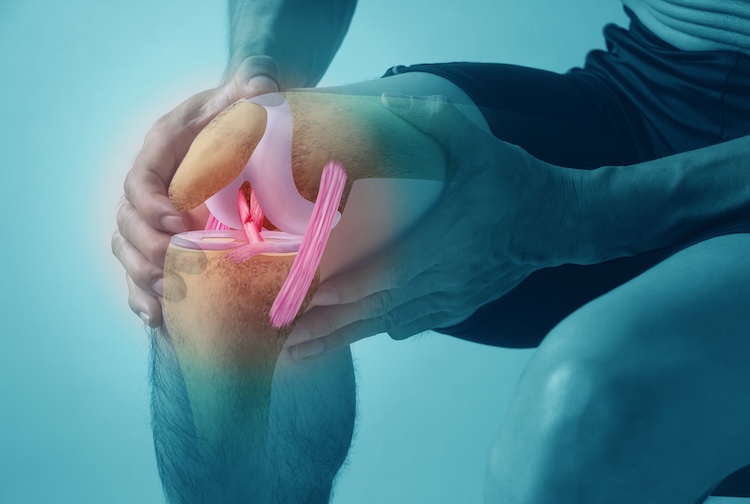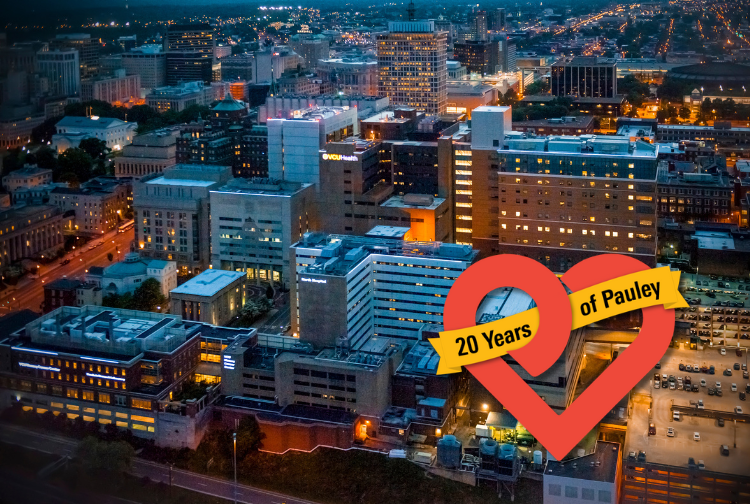What the mouth reveals about COVID-19
VCU School of Dentistry researcher shares insights on COVID-19 research after winning the World Perio Research Award.
July 15, 2025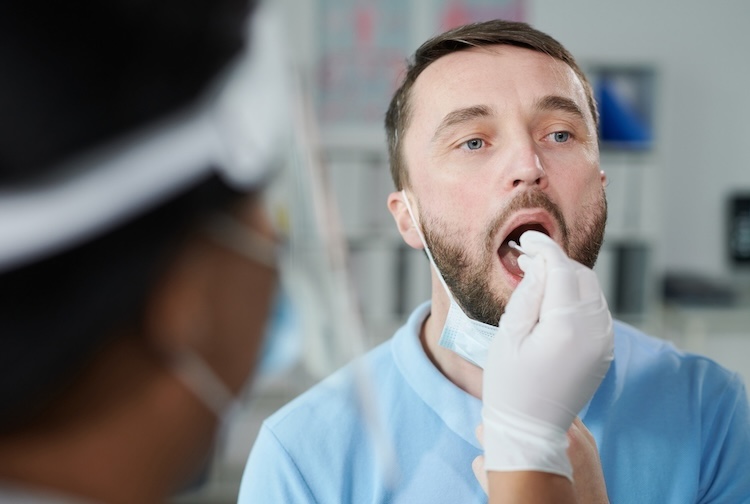 Award-winning research is connecting the dots between between the mouth and SARS-CoV-2, changing our understanding of saliva’s role in virus transmission. (Getty Images)
Award-winning research is connecting the dots between between the mouth and SARS-CoV-2, changing our understanding of saliva’s role in virus transmission. (Getty Images)
By Mackenzie Meleski
Does COVID-19 affect the mouth directly? And, if so, can saliva spread it?
That’s what Kevin Matthew Byrd was pondering during the early months of the pandemic, as health care workers and researchers worldwide worked tirelessly to help those in need of answers.
What started as an online discussion became an award-winning study published in March 2021, titled “SARS-CoV-2 infection of the oral cavity and saliva.”
“At the start of the pandemic, most focus was on the lungs and nasal passages. But our research teams at the University of North Carolina, where I worked before coming to VCU, and the National Institutes of Health observed patients with dry mouth, taste loss and oral ulcers, sometimes without respiratory symptoms,” said Byrd, D.D.S., Ph.D., who is now an assistant professor at the Virginia Commonwealth University School of Dentistry and a member of the Phillips Institute for Oral Health Research. “That raised the question: could the mouth itself be an early site of infection?”
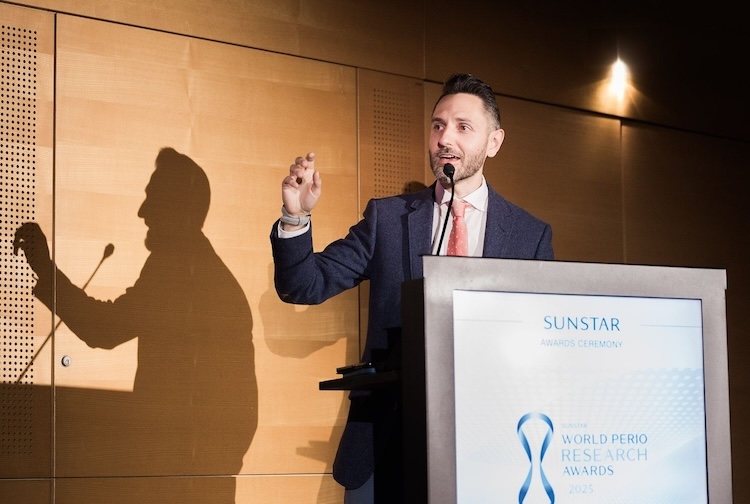 Kevin Matthew Byrd, D.D.S., Ph.D., speaking at a ceremony after he and his colleagues received the World Perio Research Award. (Contributed photo)
Kevin Matthew Byrd, D.D.S., Ph.D., speaking at a ceremony after he and his colleagues received the World Perio Research Award. (Contributed photo)
For his work on this project, Byrd recently received the prestigious World Perio Research Award, which is given once every three years by the Sunstar Foundation to an individual who has made an “outstanding research on the connection between periodontal disease and systemic health.”
Byrd spoke with VCU Health News about this research and the connections between SARS-CoV-2, the virus that causes the illness COVID-19, and oral health.
What first led you to suspect that SARS-CoV-2 might directly infect the mouth?
The mouth is a part of the body that is constantly in contact with germs, so we suspected that it might be a place where viruses get in and stay. As mentioned before, our research teams also saw patients diagnosed with COVID-19 with dry mouth, loss of taste, and oral ulcers, which are signs that a virus or bacteria may be affecting them.
How did the research team discover SARS-CoV-2 in the mouth?
By looking closely at individual cells and where they were located in the mouth, we were able to find specific cells in the mouth and salivary glands with high levels of viral receptors. We were able to confirm that these receptors were SARS-CoV-2 RNA and proteins, which proved that these were active infection sites.
How did this research change our understanding of saliva’s role in virus transmission?
Our findings shifted our view of saliva as a passive carrier of a virus to a dynamic biofluid that can also reveal infection.
We showed that the mouth itself — especially salivary glands and surfaces with mucus — can be directly infected by SARS-CoV-2, allowing the virus to replicate and be released into saliva. This helped explain why asymptomatic transmission was so common early in the pandemic and supported diagnosing COVID-19 with saliva-based testing.
Clinically, it led to updated infection control measures. More broadly, it reframed saliva as a useful way to track immune responses and identify persistent viral sites. This research is also shaping our understanding of how oral tissues might influence conditions like long COVID.
What does it mean to you and your collaborators to receive the 2025 World Perio Research Award for this work?
It is a tremendous honor. This work began during an uncertain time, driven by a shared belief that the mouth might play a more central role in infectious diseases. To have that recognized globally is deeply meaningful, for the science and for the collaboration behind it.
As I often tell my team, "The best discoveries come when we stop drawing boundaries between organ systems." This award affirms that oral biology belongs in those bigger conversations — about infection, immunity and long-term health — and inspires us to keep pushing that frontier together.
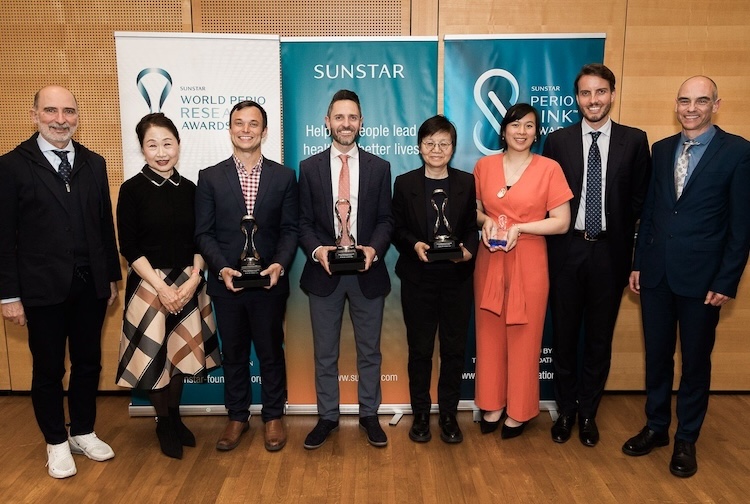
Kevin Matthew Byrd, D.D.S., Ph.D., and his colleagues at the World Perio Research Award ceremony in Vienna, Austria, in May 2025. (Contributed photo)
Learn more about the World Perio Research Award at VCU School of Dentistry


